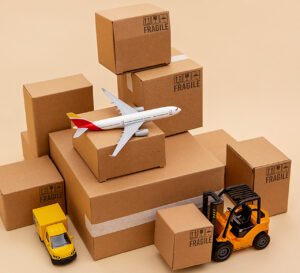
Keeping logistical variables and vulnerabilities at a minimum
The World Economic Forum’s Global Risks Report 2024 characterized the world we live in as marked by rapidly accelerating technological change and economic uncertainty. Underlying geopolitical tensions threaten to combine with burning hostilities in multiple regions.
Moreover, there are two new entrants to the Top 10 risk ranking this year: inflation and economic downturn. The cost-of-living crisis remains a major concern. This stems from supply-side pressures ranging from El Niño conditions to the potential escalation of live conflicts.
As a result, it is likely that a new set of winners and losers across both advanced and developing economies would emerge.
As a middle-income economy, for instance, the Philippines has some room to grow. Data from the Philippine Statistics Authority showed that in the fourth quarter of 2023, gross domestic product (GDP) expanded by 5.6%, bringing the full-year GDP growth to 5.6% — well below the 2023 target of the Development Budget Coordination Committee, which was between 6% to 7%.
It is clear that there is an opportunity for the economy to grow and do better. The question is how.
We at Stratbase have always advocated a shift from a consumer-driven economy to investment-led growth, and a serious, single-minded pursuit of investments in the manufacturing sector. Through this, the Philippines can better stimulate economic activity, create employment opportunities, and attract yet more investments, all ultimately driving sustainable economic growth.
The geopolitical situation in the Indo-Pacific region, food security and supply chains, digitalization and infrastructure development for tourism growth, and energy security were among the themes explored during the 10th edition of the Philippines-Spain Forum, organized by the Philippine Chamber of Commerce through its Philippines-Spain Business Council, and Casa Asia earlier this month. The event celebrated the enduring relationship between Spain and the Philippines and highlighted opportunities for trade and investment.
Indeed, there is a need for a comprehensive approach to maritime security, considering both the immediate environment and the bigger picture. What emerged from the forum was that the maritime challenges in the Indo-Pacific region, where the Philippines sits, has global implications. These maritime issues do not just affect our political and territorial rights as a nation. Our reliance on maritime transportation is linked to national security, economic development, international relations, and the broader challenges and opportunities in the Indo-Pacific region.
One of the highlights of the forum was a talk by Pablo Corralo of Bluefocus Infrastructure Advisors. Mr. Corralo said that the Philippines heavily relies on maritime transportation for goods, including food. Thus, if the costs of marine transportation — fuel expenses, port fees, and maintenance expenses of vehicles —increase, the price of food also increases. The overall logistics costs in the Philippines are actually higher, which directly affects the transportation of goods, including food products.
Is there a way, then, to keep the variables and external vulnerabilities to a minimum so that the price of food and other goods would be more stable and predictable for the average Filipino?
According to Mr. Corralo, ongoing developments in technology and practices can play a significant role in achieving sustainability goals in the food supply chain. This includes innovations such as blockchain for traceability, precision agriculture for efficient resource use, and advancements in packaging to reduce waste. Embracing these developments can contribute to a more resilient and sustainable food system, addressing both environmental concerns and long-term food security.
Keeping up with developments in logistics and technology entails establishing and strengthening ties with economic partners, Mr. Corralo said. This is meant to enhance the Philippines’ position in the global supply chain. This is also particularly relevant to addressing vulnerabilities in maritime transportation, as strategic partnerships can contribute to infrastructure development and technology sharing.
One of the consequences of globalization is that nations become interdependent upon one another in various aspects of their economic life. This facilitates trade and commerce and improves everybody’s access to goods and services no matter where they are from. On the other hand, it also highlights some vulnerabilities especially when unforeseen circumstances — conflict, for instance, or disasters, or pandemic-induced mobility restrictions — disrupt the usual flow of trade.
The sea lanes, particularly, are a major component in the supply chain. Maritime issues such as contention and power plays over a given territory could be tricky. Imagine one country attempting to infringe into a territory, asserting itself in places it has no authority to do so, and driving away legitimate vessels and fishermen. But the sea is also where a fair amount of trade passes, and any instability in the sea lanes poses a threat to the stability and reliability of the transport of goods.
It is thus imperative that we address our maritime challenges, for the sake of our sovereignty, and also for the sake of the stability of our supply chains. If we can minimize the variables and vulnerabilities in moving goods, including food, from one place to another, then we can attract more investments as intended and keep prices stable, benefiting not only individuals and families, but also the Philippine economy as a whole.
Victor Andres “Dindo” C. Manhit is the president of the Stratbase ADR Institute.



